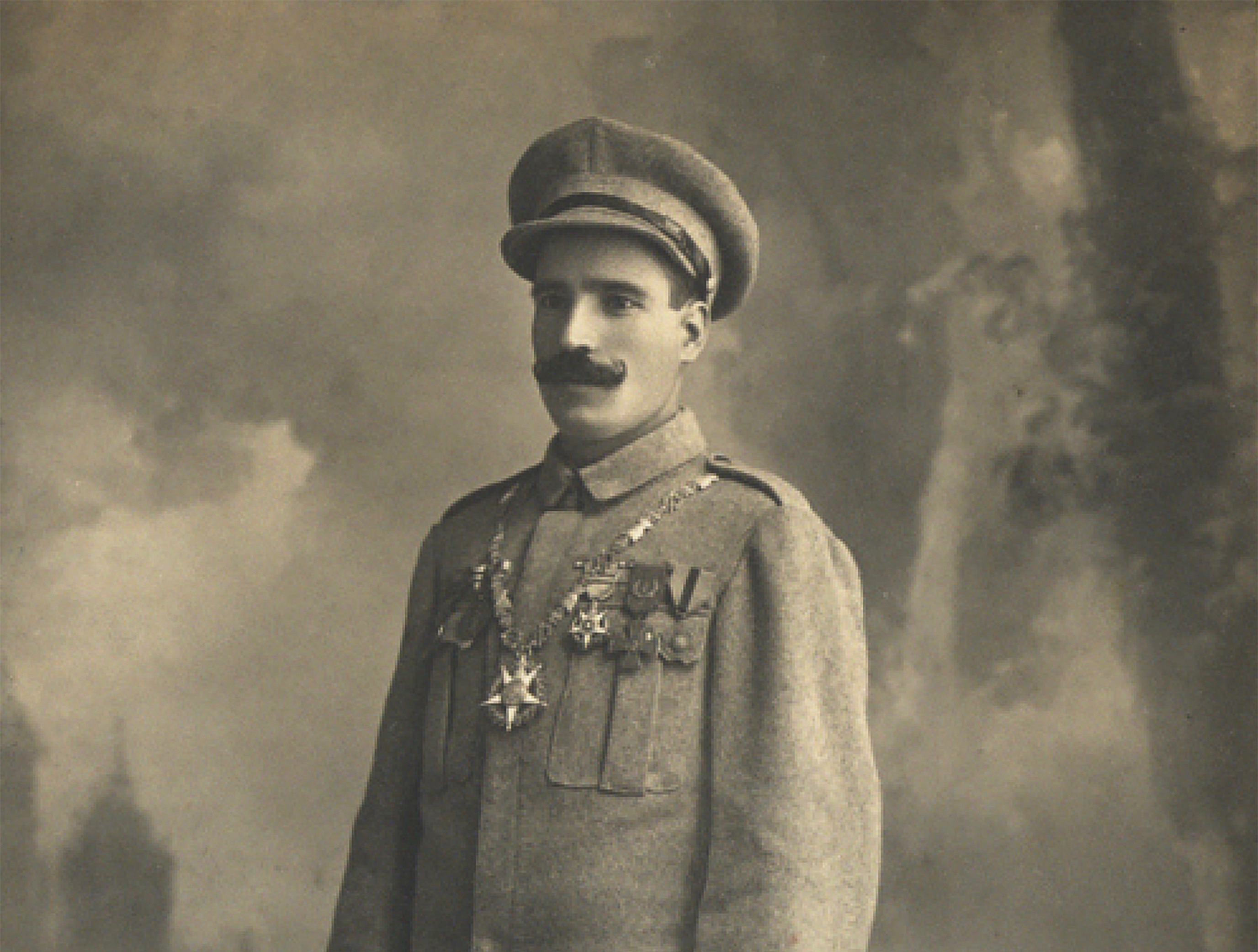Aníbal Milhais stood alone on a hill in the Portuguese sector of the Western Front in France in 1918. Before him two German divisions advanced across no-man’s-land. Behind him his battalion of the Portuguese Expeditionary Corps and a Scottish regiment fled, having been decimated by a massive preparatory artillery barrage.
The Kaiserschlacht (“Kaiser’s Battle” in German)—a spring offensive ordered by General Erich Ludendorff—was under way, and Allied lines were reeling from the onslaught. What Milhais, a farm boy from northern Portugal, did next would earn him due recognition and the nickname “Soldado Milhões” (“Soldier Million” in Portuguese).
Portugal was a latecomer to World War I. Neutral in 1914, it was drawn into the conflict after Germany declared war on it in 1916. The 55,000-man Portuguese Corps saw action in northern France at Neuve-Chapelle, Fauquissart and Ferme du Bois, near the Belgian border. Born on July 9, 1895, Milhais had been a farmer when drafted in 1915. He was assigned to the corps’ 2nd Division, which deployed to France in 1917. By all accounts he was a rather quiet, modest young man.
By April 1918 the Portuguese were reeling from nearly nine months of frontline action. The 2nd Division was to rotate out on April 9. At 4 that morning, on the heels of a two-day artillery bombardment that had pummeled the Portuguese sector, the Germans launched Operation Georgette (aka the Battle of the Lys).
Milhais was behind the lines when the attack started. Grabbing his Lewis light machine gun, he ran forward with another soldier. Climbing a hill overlooking the village of La Couture, the pair noted with alarm their battalion was in full retreat. As they set out to join their countrymen, a German grenade killed Milhais’ comrade. Alone, Milhais took cover in a shelter and waited. When he re-emerged, the attacking Germans had nearly summited the hill. Knowing his unit would need time to regroup, Milhais set up his Lewis gun and repulsed two more assaults, killing scores of Germans.
Milhais fired from different locations to give the impression his position was heavily defended. Believing they had encountered a full regiment, the Germans ultimately bypassed the hill to resume their advance. Milhais remained in place until he ran out of ammunition. Left stranded behind enemy lines, he stayed on the move for three days before coming to the aid of a Scottish major who had also been separated from his unit. Together, they made their way back to friendly lines.
Milhais did not mention his actions against the Germans. His heroics might have gone unnoticed if not for the Scottish major, who filed a report with his superiors. Others also came forward to relate what they had seen, and that summer Milhais was honored for his bravery in a ceremony witnessed by some 15,000 Allied troops. As Major João Ferreira do Amaral presented Milhais with the Ordem Militar da Torre e Espada (Military Order of the Tower and Sword)—Portugal’s highest honor—he said, “Tu és Milhais, mas vales milhões” (“You are Milhais, but you are worth millions [of soldiers]”). Milhais also received the French Légion d’honneur, for a similar action in defense of a retreating Belgian unit.
In 1924 the Portuguese Parliament renamed his hometown of Valongo as Valongo de Milhais. But he remained a struggling farmer. Appalled at his predicament, the Portuguese public mounted a fundraiser for Milhais, and the government provided him with a small pension. The ever humble farmer died at age 74 in 1970.





